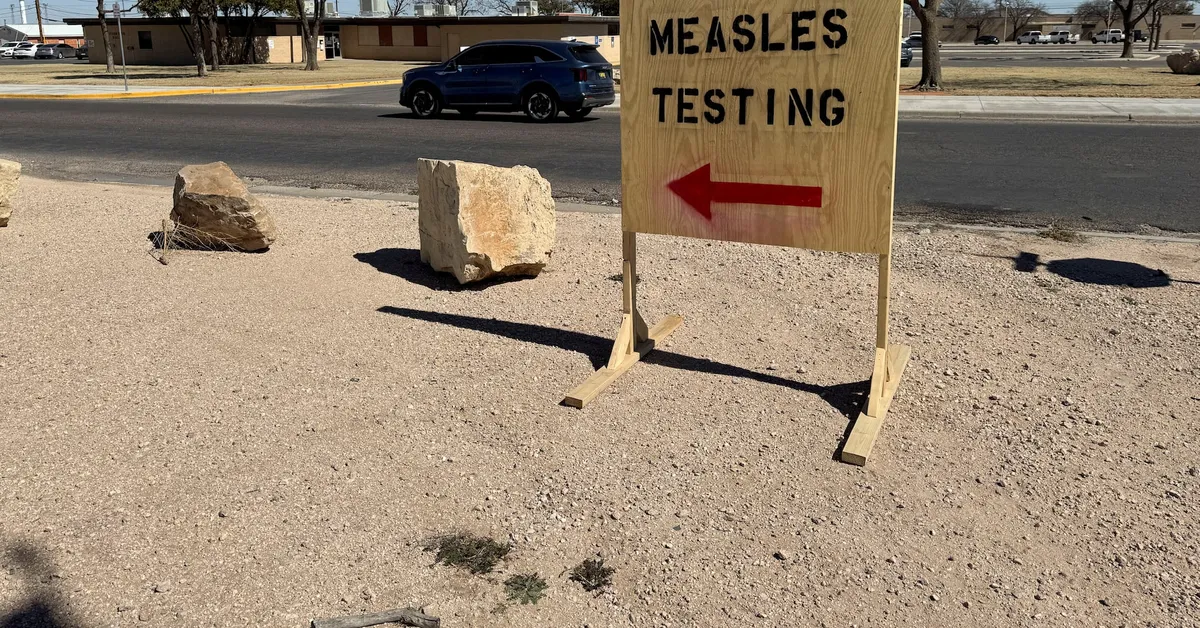
On March 28, health departments from Texas and New Mexico reported a significant 20% increase in measles cases over just three days, raising alarms among health experts. The latest reports indicate that Texas has recorded a total of 400 measles cases, with 270 of those originating in Gaines County, the epicenter of the current outbreak. Alarmingly, Texas has also documented two fatalities linked to the ongoing measles outbreak.
In New Mexico, the health department confirmed one additional case, bringing its total to 44 cases. Local outbreaks have also been connected to the Texas situation in neighboring states, including Kansas and Oklahoma. The U.S. Centers for Disease Control and Prevention (CDC) reported that as of March 27, there were 483 confirmed measles cases nationwide, a substantial increase of 105 cases from the previous week. This is particularly concerning given that the number of measles cases reported in the U.S. this year has already surpassed the total for all of 2024.
Infectious disease experts are cautious about predicting the trajectory of this outbreak, yet they unanimously agree that more cases are expected to emerge. Dr. Sapna Singh, chief medical officer for Texas Children's Pediatrics, expressed concern that the outbreak is still actively spreading, which may not be fully captured in current reports. Additionally, she noted that upcoming holiday gatherings and increased travel could further exacerbate the situation.
Experts have highlighted that the declining vaccination rates in the U.S. have left the population vulnerable to outbreaks of highly contagious diseases like measles. Once declared eradicated in the U.S. in 2000, measles has returned as vaccination rates have dropped. In Gaines County, where the outbreak began, only 80% of the population is vaccinated against measles, significantly below the 95% threshold required for herd immunity.
Dr. Amesh Adalja, an infectious disease expert at the Johns Hopkins University Center for Health Security, predicts that the number of cases will likely rise in the coming weeks. This could be due to both the rapid pace of infections and increased efforts to diagnose cases within the affected community. "In populations with low vaccination rates, diseases like measles can spread rapidly until there are no more hosts available for the virus," he explained.
U.S. Health Secretary Robert F. Kennedy Jr. has prioritized addressing the measles outbreak in Texas. However, he has refrained from explicitly urging vaccination, despite overwhelming evidence supporting immunization as the most effective defense against measles. This year alone, 20 jurisdictions across the U.S.—including Alaska, California, Florida, and Ohio—have reported measles cases linked to the outbreak, highlighting the national implications of this public health crisis.
Dr. William Schaffner, an infectious disease expert at Vanderbilt University Medical Center, warned that travel in and out of the affected areas in West Texas could lead to additional outbreaks in surrounding communities. "Each of these smaller outbreaks may vary based on the specific demographics of the communities, and there is a potential for widespread transmission," he cautioned.
The situation remains fluid, and the public is urged to stay informed about the ongoing developments in the measles outbreak and the importance of vaccination to protect against this highly contagious disease.